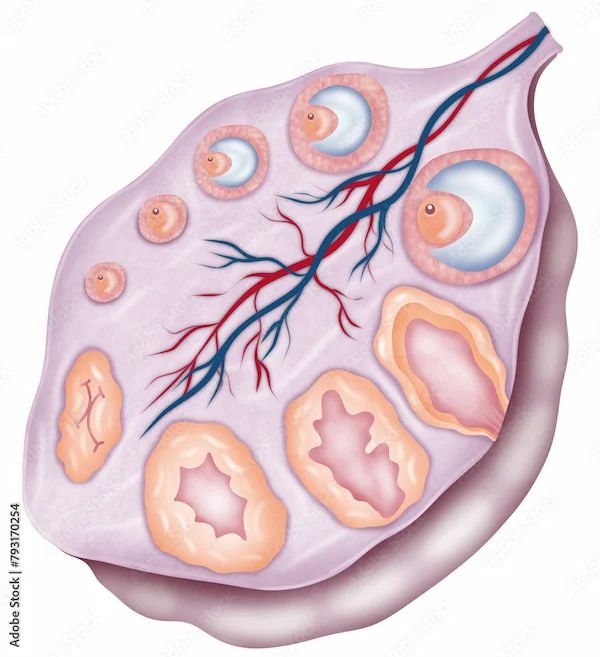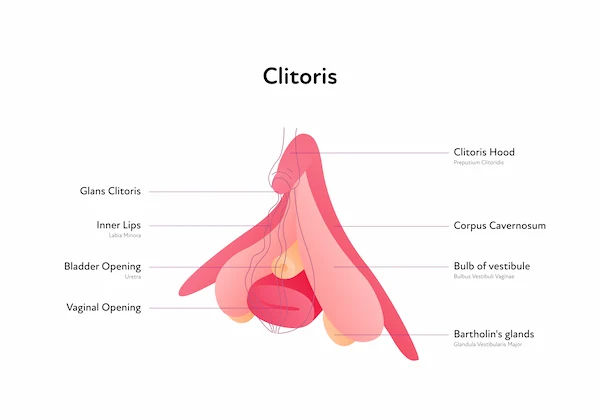How To Increase Endometrial Thickness?
Struggling with thin endometrium? Explore potential ways to increase endometrial thickness naturally and through medical interventions.

Written by Dr.Sonia Bhatt
Last updated on 20th Jul, 2025
.webp?tr=q-80,f-webp,w-350,dpr-2,c-at_max 700w)
Introduction
If you're trying to conceive or experiencing fertility issues, you may have heard about endometrial thickness and its importance in pregnancy. The endometrium is the inner lining of the uterus, which thickens during the menstrual cycle to prepare for a fertilized egg. If it’s too thin, implantation may not occur, leading to difficulties in getting pregnant.
The good news is that there are natural ways to improve endometrial thickness. In this article, we’ll explore what affects it, how to increase it, and when to seek medical help.
What Is Endometrial Thickness?
The endometrium is a dynamic tissue that changes throughout a woman’s menstrual cycle:
Menstrual Phase (Days 15): The lining sheds, leading to periods.
Proliferative Phase (Days 614): The lining starts thickening under the influence of estrogen.
Secretory Phase (Days 1528): Progesterone helps prepare the lining for possible pregnancy.
A healthy endometrial thickness is typically 812 mm during the ovulation phase for successful embryo implantation. If it’s below 7 mm, it may be considered thin and could affect fertility.
Causes of Thin Endometrium
Several factors can lead to a thin endometrial lining:
Low Estrogen Levels: Insufficient estrogen, due to conditions like PCOS or menopause, impairs endometrial thickening.
Poor Blood Flow: Reduced circulation to the uterus limits the delivery of nutrients needed for endometrial growth.
Chronic Inflammation or Infections: Conditions like endometritis can damage the uterine lining and hinder its development.
Scarring or Asherman’s Syndrome: Adhesions from previous uterine procedures or infections can prevent the endometrium from thickening properly.
Hormonal Imbalances: Issues with other hormones, such as thyroid hormones or prolactin, can interfere with endometrial development.
How to Increase Endometrial Thickness Naturally
Tips on how to potentially increase endometrial thickness:
Improve Blood Circulation: Engage in moderate exercise, consider gentle abdominal massage, and explore acupuncture to enhance blood flow to the uterus.
Eat a Nutrient-Rich Diet: Include iron-rich foods, Vitamin E sources, omega-3 fatty acids, and L-arginine-rich foods to support endometrial health and blood flow.
Stay Hydrated: Drink enough water to maintain proper blood volume and ensure good circulation to the uterus.
Manage Stress: Practice meditation, deep breathing, and prioritize sleep to balance hormones that can affect the endometrium.
Herbal Remedies (Consult a Doctor First): Discuss the potential benefits of red clover, Dong Quai, and raspberry leaf tea with your healthcare provider.
Avoid Harmful Substances: Limit or avoid caffeine and alcohol, and completely abstain from smoking to maintain healthy blood flow to the uterus.
Medical Treatments for Thin Endometrium
If natural methods don’t work, consult a doctor. Possible treatments include:
✔ Estrogen Therapy – Supplements to boost endometrial growth.
✔ Hormonal Support – Progesterone or other fertility medications.
✔ PRP (PlateletRich Plasma) Therapy – A newer treatment that may enhance endometrial regeneration.
✔ Hysteroscopy – If scarring is present, surgery may be needed.
When to See a Doctor?
If you’re struggling with fertility or have:
Irregular periods
Repeated miscarriages
Very light periods (possible thin lining)
It’s best to consult a specialist. Apollo 24|7 offers expert consultations and fertility tests to help you understand your condition better.
Conclusion
A healthy endometrial lining is essential for conception. While lifestyle changes can help, medical intervention may be necessary in some cases. If you’re concerned about your fertility, don’t hesitate to seek professional advice. Need help? Book a consultation with a fertility specialist on Apollo 24|7 today and take the first step toward your pregnancy journey!
Consult Top Gynecologist
Consult Top Gynecologist For Effeicient Treatment

Dr. Sridevi Matta
Obstetrician and Gynaecologist
28 Years • MS ( OBG ), DGO, DNB Obstetrics & Gynaecology
Chinagadila
Apollo Hospitals Health City Unit, Chinagadila
(175+ Patients)

Dr. Harshitha B R
Obstetrician and Gynaecologist
11 Years • MBBS, DGO( OBS & GYN)
Bengaluru
Apollo Clinic, JP nagar, Bengaluru

Dr. Ramya G S
Obstetrician and Gynaecologist
11 Years • MBBS, DGO - Obstetrics & Gynaecology, DNB - Obstetrics & Gynaecology
Bengaluru
Apollo Clinic, JP nagar, Bengaluru

Dr. Mona Yadav
Obstetrician and Gynaecologist
19 Years • MBBS, MD (Obstetrics & Gynaecology)
Dombivli
Nulife multispeciality, Dombivli

Dr. Asha Rani Singh
Obstetrician and Gynaecologist
24 Years • MBBS DGO
Delhi
Dr Asha Rani Singh Clinic, Delhi
Consult Top Gynecologist

Dr. Sridevi Matta
Obstetrician and Gynaecologist
28 Years • MS ( OBG ), DGO, DNB Obstetrics & Gynaecology
Chinagadila
Apollo Hospitals Health City Unit, Chinagadila
(175+ Patients)

Dr. Harshitha B R
Obstetrician and Gynaecologist
11 Years • MBBS, DGO( OBS & GYN)
Bengaluru
Apollo Clinic, JP nagar, Bengaluru

Dr. Ramya G S
Obstetrician and Gynaecologist
11 Years • MBBS, DGO - Obstetrics & Gynaecology, DNB - Obstetrics & Gynaecology
Bengaluru
Apollo Clinic, JP nagar, Bengaluru

Dr. Mona Yadav
Obstetrician and Gynaecologist
19 Years • MBBS, MD (Obstetrics & Gynaecology)
Dombivli
Nulife multispeciality, Dombivli

Dr. Asha Rani Singh
Obstetrician and Gynaecologist
24 Years • MBBS DGO
Delhi
Dr Asha Rani Singh Clinic, Delhi




